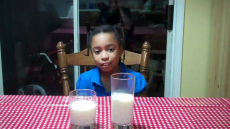
Developmental Psychology, unsurprisingly refers to the approach to psychology whereby researchers study how a person’s upbringing and nurturing affects their behaviour. There is a well-known debate across the field of Psychology, known as the nature-nurture debate. This refers to the opposing views as to whether it is our upbringing and the environment around us that has the biggest effect on our behaviour, or whether it is factors of our nature that have the biggest effect, such as our genes and DNA. Naturally, developmental psychologists study the nurture side, believing that what’s most important is the world around us, so, let’s have a look at some findings in this area so far and see if you agree with their ideas, or whether you believe that the majority of psychology is programmed from birth.
One example of a developmental study is Bowlby’s ’44 thieves study, which focussed on the effects of ‘maternal deprivation’. This relates to the idea of being separated from your mother or primary caregiver for extended periods of time. Bowlby showed that of the thieves he studied, many had gone through a period of their childhood without their mother. He explained that during the critical period of the first two years, infants behave based on what can be described as ’cupboard love’, whereby, their love for their primary caregiver grows since they provide them with what they need, such as food, water and warmth. This bond develops, enabling the individual to have healthy relationships with others, but those who did not experience it during the critical period, will have consequences in their development, meaning that they are more likely to become criminal later on in life.
A second well known developmental psychologist was Jean Piaget, who is perhaps the most famous in the area. He was responsible for many key findings about childhood development, and set about providing guidelines for the stages of development all children should go through. One such developmental process was learning the idea of conservation. He observed that younger children could not understand that when a volume of liquid is put in a different shaped glass, it would still be the same amount, thinking the amount of water had grown or shrunk based on the water level in that particular glass. This ability to conserve is seen as a key step in the development of all people. However, some have since suggested that his findings were stronger than in reality, since some confusion was probably caused by the questioning used on the children, making them answer differently from what they actually knew to be correct.
In reality, we must accept that both our nature and how we are nurtured will have some effect on our personality and behaviour in later life. From here, the next way to understand how both of these causes link, is with identical twin studies, since they have identical DNA, and so any differences between them will be based entirely around their upbringing. This kind of study may be more difficult to achieve, but if done in a large amount of detail, and over a long period of time, it could no doubt have some very interesting and conclusive results for psychology as a whole.
Image from: http://i.ytimg.com/vi/h9ioMR8C9GI/maxresdefault.jpg

0 Comment:
Be the first one to comment on this article.